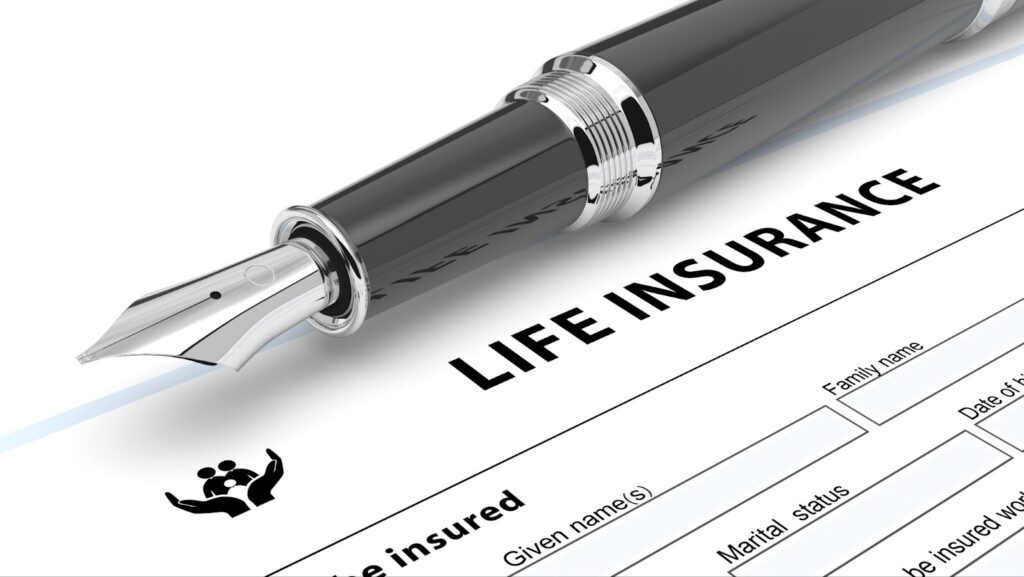Today, we are diving into everything you need to know about life insurance for pre-existing conditions. If you are reading this article, it is likely that you have a lot of questions surrounding the topic, and we’re guiding you through them all. If you are looking for life insurance for pre-existing conditions, it is important to know all of the ins and outs, and we are here to help.
Finding, let alone attaining, affordable life insurance when you are living with a pre-existing condition can be incredibly challenging and discouraging. Generally speaking, high-risk individuals looking for a life insurance policy should expect to pay more and receive fewer benefits than those without pre-existing conditions.
If you have a pre-existing condition, you know how difficult it is to even find an affordable option. Thankfully, even if you have a chronic or terminal health issue, all is not lost. There are life insurance policies available to those living with health issues and strategies you can implement to secure coverage.
Continue reading to learn more below.

Getting life insurance when you have a pre-existing condition
If you have a pre-existing condition, that does not mean you cannot qualify for a life insurance plan. While pre-existing conditions can make getting life insurance policies more difficult and expensive, it is not impossible to get a policy you qualify for, even if you have a chronic or terminal health issue. The policy types you qualify for depend entirely on your specific medical problems, how well you are managing your condition or illness, and the insurance company.
What exactly is a pre-existing condition?
In terms of life insurance policies, a pre-existing condition could be any health issue that affects your longevity that existed before you applied for life insurance coverage. What constitutes a pre-existing condition will vary from one insurer to the next.
Health problems mean more doctor visits and a great possibility of death. Due to the high-risk nature of pre-existing conditions, some health problems raise the cost of the premium or even disqualify you completely from various types of life insurance policies.
Some common examples of pre-existing conditions include diabetes, asthma, high blood pressure, and cancer. Previous injuries could also be considered pre-existing conditions, depending on the severity of any last effects.
Smoking and chewing tobacco are not considered pre-existing conditions. However, they can make getting approved more challenging, as well as how much your life insurance costs. Quitting these habits can result in less expensive premiums, depending on how long it has been since you stopped.
If you develop a serious health condition after you have already gotten a life insurance policy, it will not affect your rates. Your life insurance premium should remain the same for the length of your policy.
More illnesses or conditions that insurance companies look out for include:
- Heart disease.
- Obesity.
- Mental health issues.
- High cholesterol.
- Parkinson’s disease.
- HIV/AIDS.
- Alzheimer’s disease.
- Epilepsy.
- Alcoholism.
- Blood or protein in the urine.
- Autism.
- And more.
If you have questions about your specific health condition, make sure to talk with an agent at the various insurance companies you are looking at.

Pre-existing conditions: What does your insurance company need to know?
When you apply for life insurance, the insurance provider will likely ask you questions about your age, lifestyle, medical history, and fitness level. They will probably ask questions regarding your family medical history, too. In most cases, you will need to undergo a medical exam to qualify. You may be able to opt out of the medical exam in some situations; however, doing so could increase your premium by a pretty penny.
Generally speaking, life insurance premiums will cost less the younger you are, the better you maintain your health conditions, and the less you participate in risky activities. When you purchase your policy, it may be worth thinking about adding a guaranteed insurability rider in the event you choose to increase your death benefits later down the line without undergoing medical testing (more on riders below).
Some things that insurance companies look at when it comes to pre-existing conditions include:
- The type of condition — The severity and life expectancy associated with your condition can greatly impact your eligibility and the premium rate you will pay. For example, a person with arthritis is a lot less risky to an insurance company and, therefore, has more life insurance options than someone with terminal cancer.
- Current health condition — If your health condition is managed well and you are otherwise in good health, you can usually still qualify for traditional life insurance.
- Age and lifestyle — If you are younger and relatively healthy, you could qualify for lower rates. Lifestyle habits, like drinking, smoking, and participating in various extreme sports, can also play a role in your eligibility and the cost of your rates.
- How long ago you were diagnosed — Generally speaking, the longer the illness, the greater risk there is for complications and death, which will likely spike rates.
Getting life insurance when you have a health condition
If you are on top of managing your pre-existing condition, such as a solid treatment plan, you’ll probably find a policy you qualify for. The good news is minor, common health problems likely will not drastically affect your premium or your eligibility. Every insurance provider has a different approach to qualifying individuals and underwriting policies, so it’s wise to do your research on options and get several quotes.
It is key that you not lie about your health, only our life insurance application. If your insurer finds out you left out certain information or provided false information, you could be disqualified from coverage, and your policy will be canceled. If, by some miracle, your policy is not canceled, you will experience a significant increase in your premium.
What is the best kind of life insurance for people with pre-existing conditions?
There are many types of policies out there that will help meet your various needs. If you are living with chronic health issues, the following options could be available to you:
- Term insurance — Term insurance is the most common and cost-effective type of life insurance and offers coverage for a set period of time, usually between 10 and 30 years. It means you can lock in protection for you and your family when you need it most. If your pre-existing condition is well-managed, you could qualify for term life insurance.
- Permanent insurance — Permanent life insurance plans offer lifelong protection to individuals that never expire. These policies are more expensive than term policies but can be a great fit if you are responsible for providing for a special needs child or have other lifelong financial obligations.
- Final expense — Final expense insurance is meant to help individuals cover end-of-life costs, such as medical bills or a funeral. These policies do not require policyholders to undergo medical exams and could be a great option if you have a chronic health condition.
- Guaranteed issue —If you are not eligible for traditional options, guaranteed issues could be right for you. Guaranteed issues offer dependable coverage with level premiums. You can never be turned down for health reasons by an insurer.
- Life insurance riders — Riders are additional features you can add to change your current policy to meet your specific needs. These riders can be incredibly helpful for pre-existing conditions, including:
- Long-term care rider — This offsets or totally covers long-term assisted living or nursing home costs.
- Accelerated death benefit rider — This allows your beneficiaries to collect the death benefit early if you have been diagnosed with a terminal condition.
- Living benefit rider — This allows you and your beneficiaries to collect a living benefit if you have a qualifying health condition, a critical benefit if you are unable to work.

Insider tips and tricks for buying life insurance for pre-existing conditions
Buying life insurance for pre-existing conditions might be intimidating, but by implementing some key steps, you increase your chances of being approved for coverage. Take time to learn and understand how pre-existing health conditions can affect the cost of coverage before you start shopping. This way, you will be prepared for the finer details of buying life insurance for pre-existing conditions.
Here are some insider tips and tricks to get you by:
- Apply early — The older you become, the more expensive life insurance policies tend to get. This is because your insurance provider assumes that with an older policyholder, there’s a greater chance of the insurer having to pay out the death benefit indicated in the plan.
To avoid the high rates that come with applying for coverage later in life, you might want to consider applying for life insurance earlier in your life (such as in your 20s or 30s). Doing so sooner rather than later will help you lock in a more affordable rate for years down the line.
Not only can you expect to get better premium rates when you are younger, but most people also expect to be healthier earlier in life. The older you are, the more likely you might be to develop various health problems, which, to an insurer, could be categorized as a pre-existing condition. - Never hide your health condition — One of the worst things you can do when looking for a life insurance plan when you have a pre-existing condition is to lie about it. Insurers typically refer to your medical history before offering coverage to make certain you haven’t omitted anything in your application responses.
Even if you do not tell your insurer about your health issues, they will usually find out about it through their investigation processes. Lying on your application will do more harm than good and puts you at risk of losing or being denied coverage or even a denied death benefit. Always be forthright with your insurance provider to avoid these problems. - Share health improvements with your insurance provider — If you have been approved for life insurance and you have a pre-existing condition, it is always a good idea to communicate any improvements associated with your health to your insurance provider.
Sometimes, insurance companies will make adjustments to your premium if they see that your condition is improving or has been eliminated. You may need to go through a medical exam or screening or provide your insurer evidence of improvement from your medical provider to qualify for lower rates.
What to do when you’ve been denied life insurance coverage
Various life-threatening or untreatable pre-existing conditions put individuals at much higher risk than others. If you have been denied coverage, you may want to look at enlisting the help of an independent broker while you continue to resubmit your applicator after waiting for a certain amount of time.

Get life insurance for pre-existing conditions at Bear River Mutual Insurance today
Are you on the hunt for life insurance for pre-existing conditions but aren’t sure where to start the process? The professionals at Bear River Mutual Insurance are here to help you.
Shopping for a life insurance policy can be a daunting and intimidating process, and these feelings are only amplified when pre-existing conditions are involved. And that’s why our team of experts is here to help.
Life insurance is an important part of life and offers individuals and families a financial safety net during an already challenging time. Our team is here to help you and your loved ones find the best policies that meet your needs despite having a pre-existing condition.
Whether you need life, automobile, business, health, home, or another type of insurance, contact the Bear River Insurance professionals. We are committed to helping you find a policy that is the perfect balance of security, value, and benefit for you and your loved ones, giving you the peace of mind you deserve.
You can find us in three convenient locations across the Wasatch Front to best serve you, your family, and your business. Find us in Salt Lake City, Orem, or Provo. Contact Bear River Mutual Insurance to get your free quote today!




